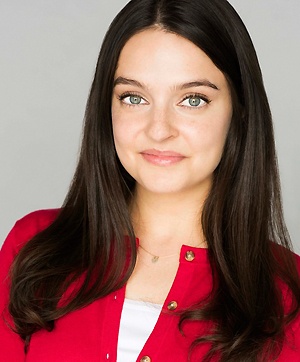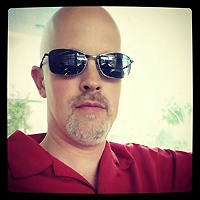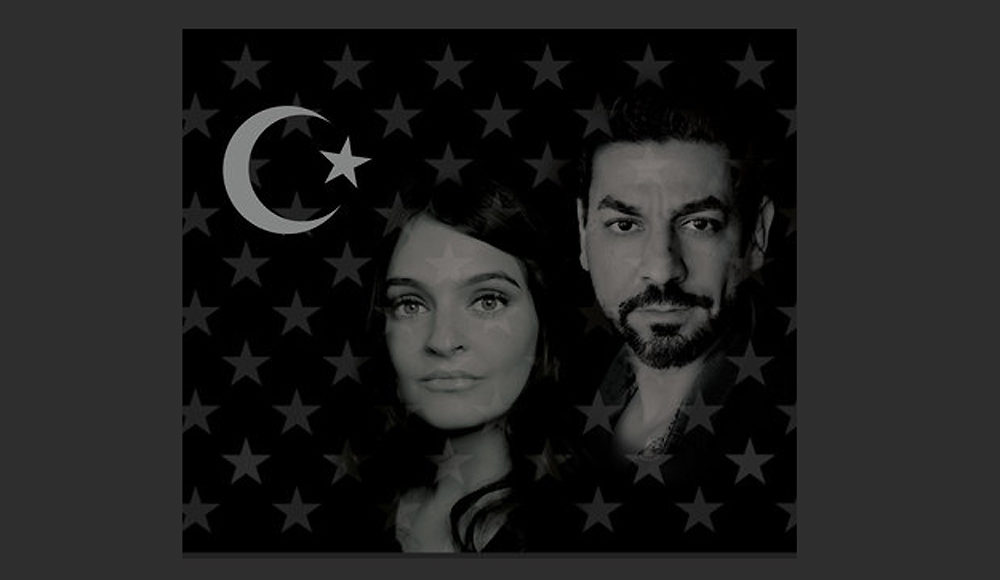By Ernest Kearney — Baba, Jee (Father, Yes) is a solidly written, smartly directed and tightly performed piece.
The story is straight-forward and has, at its center, one of the popular motifs of great drama —from Oedipus to Long Day’s Journey into Night— the conflicts of father and child.

Ayesha-Siddiqui, playwright “Baba Jee (Father, Yes)”
Maria (Ayesha Siddiqui – the playwright) lives in a New York apartment with her mildly neurotic boyfriend Dave (Chris Tedrow). For good reasons both are bouncing off the walls at the play’s opening.
Dave, a floundering chef, has begun to doubt his future in the culinary arts and is cramming for his SAT test, as he prepares to return to college.
Maria, who dropped out of college to pursue her poetry writing, now works as a waitress and is stressing out over the impending arrival of her father (Ayman Samman) from Pakistan: Twenty years being the duration of time separating them from their last encounter.
Here is a maelstrom of potential conflicts but for good measure Siddiqui sets her piece on the eve of Hurricane Sandy striking the East Coast.
Siddiqui has crowded her stage with individuals in isolation, lovers and family who inhabit terra incognito with regards to one another.
For what it is, Baba Jee (Father, Yes) is hard to fault.
Director Matthew Martin guides his cast about a problematic set with aplomb and brings the writer’s intent forward in crystal clarity.
Siddiqui, Tedrow and Samman fill their roles with skill and sincerity, and Siddiqui’s script is well structured and resplendent with intelligence and craft.
Where I find fault, in the play, is in what is not there.
Siddiqui’s play is a petite drama that seems to be struggling within its own limits.
There is more play here than the playwright has written.

“Baba, Jee (Father, Yes)” Director, Matthew Martin (HFF18)
One reflection of this calls forth the presence of the fourth and most underused character – Hurricane Sandy; the largest Atlantic hurricane on record which slammed into New York in October of 2012.
Siddiqui has placed a potent quartet on stage but has left the cello unplayed.
From The Odyssey to King Lear to Key Largo to All is Lost, the fury of a tempest has been used to strip artifice from those battered by its force. Siddiqui sets up the storm, so it seems, as a means of imprisoning three people together who are already imprisoned in their own skin, and here her instincts are correct, but her employment of the storm, both as a device of confinement and as a metaphor for the internal tumult of her characters, is soft pedaled.
Siddiqui’s intent is to illustrate that family is “in the bone,” and she does that.
But like the final revelation of what has kept daughter and father apart for twenty years, both are played in a minor key.
 Siddiqui states, eloquently indeed, that family is “in the bone,” but only murmurs what affirms the towering importance of that assertion; that without family we are all made orphans in the storm of life.
Siddiqui states, eloquently indeed, that family is “in the bone,” but only murmurs what affirms the towering importance of that assertion; that without family we are all made orphans in the storm of life.
Something for the playwright to think about perhaps.
In the meantime, a GOLD MEDAL for a sound piece of writing and a sharp staging.
♦ ♦ ♦
Baba, Jee (Father, Yes)
was a Fringe Festival 2018 Scholarship Award Winner and Producer’s Encore Award Winner

For Continuing Information Go To:
For an Updated List of TVolution Award 2018 Tallies Click HERE.
Like us on Facebook
Follow us on Twitter @theTVolution
Please Subscribe to our Newsletter
(Box on the Left Rail)
We Thank You for Supporting the Voices of TheTVolution
Looking for More Events? Click HERE





